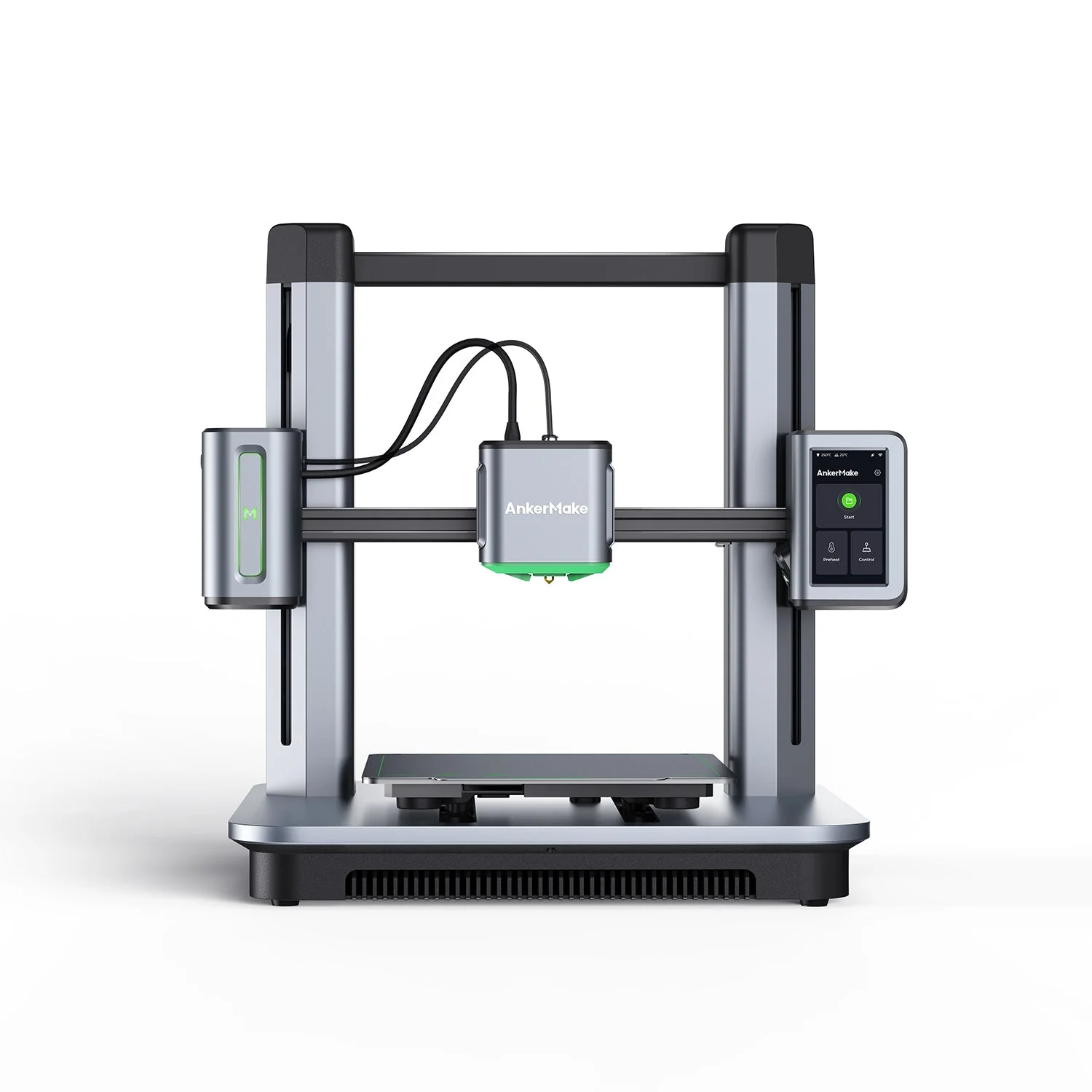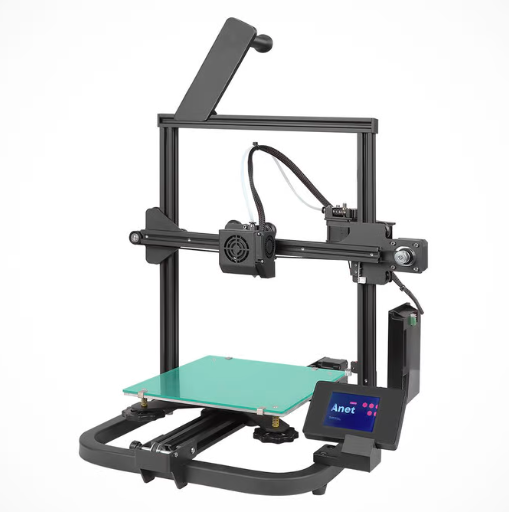Compare M5 vs A8 V2
Comparison between the best 3D printers
Choose the best 3D printer at the best price. The cheapest 3D printers are here.
Buy a 3D printer here with 3D Fila.
 |
 |
|
| Model | M5 |
A8 V2 |
| Printing Material | Filament | Filament |
| Buy Filament for AnkerMake M5 | Buy Filament forAnet A8 V2 | |
| Estimated price | $497,00 | $129,00 |
| Manufacturer | AnkerMake | Anet |
| Release Year | 2023 | 2021 |
| Print Volume [mm] | 235x235x250 | 220x220x250 |
| Printer Size [mm] | 502x438x470 | 428x441x486 |
| Weight [kg] | 12,6 | 6,2 |
| Power Loss Recovery | YES | NO |
| Enclosed printer | NO | NO |
| Bed Leveling | Automatic | Manual |
| Filament End Sensor | YES | NO |
| Bed type | Heated | |
| Power supply system | Direct Drive | Bowden |
| Standard nozzle | 0,4 | 0,4 |
| Maximum Nozzle Temperature [°C] | 260 | 230 |
| Maximum Bed Temperature [°C] | 100 | |
| Maximum printing speed [mm/s] | 500 | 150 |
| Filament holder | YES | YES |
| Camera for supervision | YES | YES |
| Recommended filaments | PLA, PETG, ABS | PLA |
| Recommended slicers | AnkerMake Studio (macOS, Windows), Simplify3D, Ultimaker Cura, PrusaSlicer | Cura, Simplify, Slic3r, IdeaMaker |
| Maximum Resolution [mm] | 0,1 | 0,1 |
| Processor | ||
| Display | Touchscreen 4,3'' | Display touchscreen 2,8'' |
| Power Supply | 350 W | 110/220V / 250W |
| Connectivity | Wi-Fi, USB-C, OTA Upgrade | SD / USB |
| Operating systems | Windows, Linux, Macbook | Windows, Mac, Linux |
| Date of registration in the system | 2024-07-08 | 2022-11-10 |
| Release date | 2023 | 2021 |
| Extra features | The AnkerMake M5 printer stands out for its impressive print speed, reaching up to 500mm/s. It features AI print monitoring, an integrated camera for creating timelapses, auto-leveling bed with pressure sensor, direct extruder, flexible PEI-coated build plate, and Wi-Fi and USB-C connectivity. Assembly is quick and easy, and the printer is designed to deliver high print quality and ease of use. | The Anet A8 V2 is a Cartesian-XZ type 3D printer with a build volume of 220 x 220 x 250 mm, Ender 3 design and V-slot assembly. It has a 32-bit motherboard and touchscreen interface, promising ease of use. It uses open source firmware and has thermal failure protection. It stands out for its cable organization and the absence of a heated bed, focusing on energy savings and PLA printing. It comes with an external power adapter, aiming at greater safety, especially for beginners and educational use. |
| Support for multiple colors and materials (AMS and CFS) | NO | NO |
Notes * |
||
| Cost-benefit | 7 / 10 | 6 / 10 |
| Hardware | 4 / 10 | 0.6 / 10 |
| Tela | . | . |
| Print volume | 3 / 10 | 3 / 10 |
| Performance | 4 / 10 | 1 / 10 |
Conclusion |
| In conclusion, the comparison between the AnkerMake M5 and the Anet A8 V2 highlights a clear distinction in capabilities and features, reflecting their respective price points. The AnkerMake M5, released in 2023, offers advanced functionalities such as automatic bed leveling, a higher print speed up to 500mm/s, and robust connectivity options including Wi-Fi and USB-C. Its direct drive system and support for a wider range of filament types enhance its versatility for diverse printing needs. The printer's built-in AI monitoring features and high-temperature ratings further underscore its suitability for serious hobbyists or professionals seeking efficiency and quality. On the other hand, the Anet A8 V2, although significantly more budget-friendly and released in 2021, presents limitations such as manual bed leveling and a lower maximum print speed of 150mm/s. It is more geared toward beginners or educational purposes, offering a simpler experience primarily with PLA filament while maintaining essential safety features like thermal protection. However, it lacks many of the advanced features found in the AnkerMake M5, which can impact user experience and print quality. Ultimately, the choice between these two printers should be influenced by the user's specific needs: those prioritizing speed, advanced features, and broader material compatibility may find the AnkerMake M5 to be the superior option, while beginners or those on a tighter budget might consider the Anet A8 V2 as a suitable introduction to 3D printing. |

